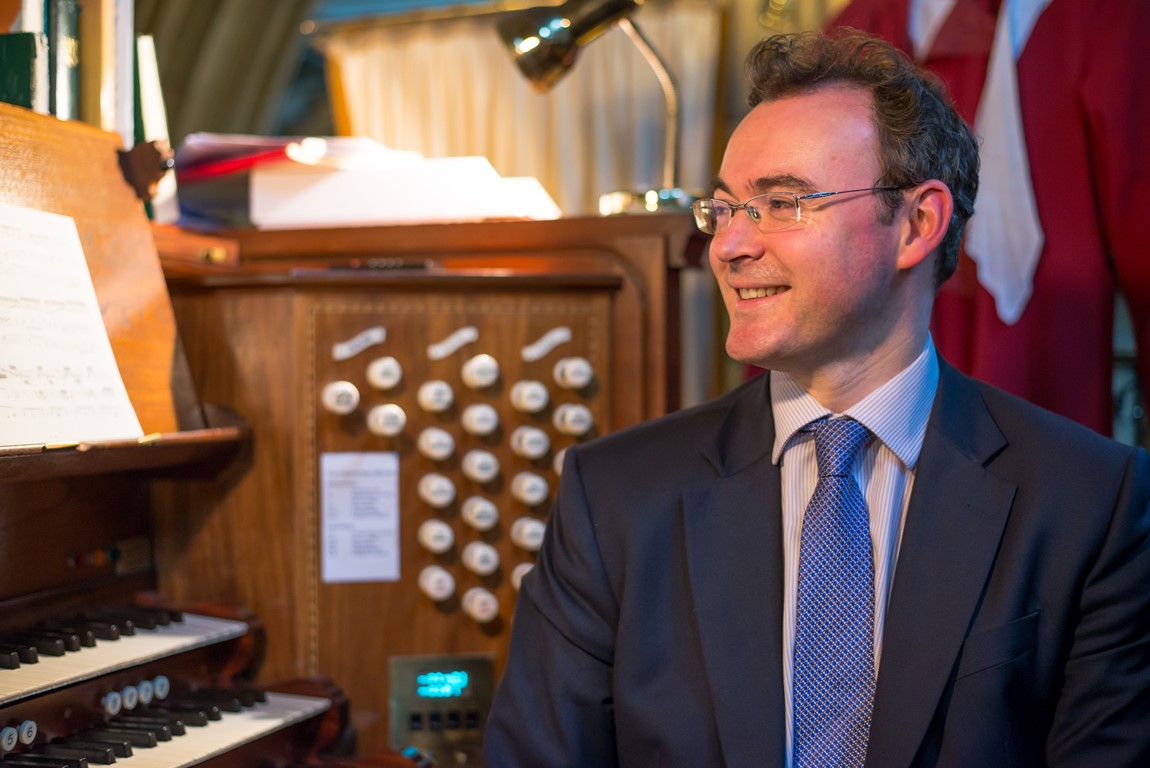Nostalgic programming isn’t what it used to be

Creating the programme for my final concert directing Truro Cathedral Choir was easier than I thought it would be. We have been blessed to work with some truly outstanding composers during my time in Truro and, while it isn’t possible to represent all of them in a single concert, I’m pleased to have been able to include pieces by six that have an especially deep connection.
I often feel that contemporary music speaks best when it’s not the only thing on the menu. In that spirit, I have topped and tailed the programme with what my choristers might describe as ‘bangers’. Architecture is essential to any concert programme, and I hope you will find that the music flows seamlessly, as it unfolds within its three sections.
The opening piece, ‘O Lord that seest from yon starry height’, is an unassuming little work by my fellow-countryman, the Armagh-born Charles Wood. His music draws us in as it gently colours the Longfellow poem which talks of our evergreen trust in God, even in the ‘hoary winter of our days’.
I’ve always loved the expressive way our boy choristers sing the next piece, Peter Hurford’s ‘Litany to the Holy Spirit’, which picks up the theme of God comforting us ‘in the hour of our distress’. And then Herbert Sumsion’s barn-storming anthem ‘They that go down to the sea in ships’ (best not to ask why one would travel to the sea in a ship!) explores a similar theme on a larger canvas as we hear how God delivers us from the storms of life.
Sir James MacMillan’s ‘Ave Maris Stella’ was composed for our cathedral choir in 2011, in memory of Gloria Baldock, and I’m honoured that it is dedicated to me. The piece could not be more different to the Sumsion, but the sentiment is similar: it implores Mary as ‘star of the sea’ to lend us her protection. This first section is rounded off with the Kyrie from Paul Drayton’s Missa Brevis, composed for our Lay Vicars and Choral Scholars during Covid times, in February 2021, when the adults of the choir were allowed to sing, but not the choristers.
The second section of the concert begins with the boys and girls combining for a piece which deeply affected us all when it was first performed in June 2018. ‘Grenfell: From Today’ came out of a collaboration with the respite charity Cornwall Hugs Grenfell (CHG) and was composed by Philip Stopford with words by Andrew Longfield, based on survivors’ comments. The project marked the one-year anniversary of the tragic Grenfell fire which claimed the lives of 72 people, including 18 children, and had a lasting impact on many more. The whole project was emotional and the depth of compassion the boys and girls showed in relating to such harrowing events will always remain with me. Choirs all over the world sang the song in solidarity. It provided a channel for people, both near and far, to express their emotions, and it is the hope of CHG founder Esmé Page and myself that it remains a poignant reminder of the community’s immense loss, their courage, and resilience. The song was embraced by Grenfell United and played as part of their 2020 memorial service.
Gabriel Jackson’s ‘Salve Regina’ was composed for our choir in 2001, when Andrew Nethsingha was Director of Music and I was his assistant. It marked the start of a relationship that culminated in a single-composer CD of works by Gabriel in 2015. Like the MacMillan work, the text is a Marian hymn that asks Mary to direct us to her son for help in the most difficult times, through ‘our sighs, mourning and weeping in this valley of tears’.
When we introduced girl choristers to Truro Cathedral Choir in 2015, I was keen for the first cohort to work with a leading composer who would provide a female role model in the world of classical music as it continues on its journey towards proper gender equality. When I first contacted Dobrinka Tabakova to ask if she might be interested in helping us with this, it was clear from the outset that I had gone to the right person. The fruitful partnership culminated in a single-composer CD of her music in 2018, and the Nunc Dimittis we will sing received its premiere in the first BBC Radio 3 broadcast the girls did, on International Women’s Day in 2017. Unusually, Dobrinka chose to open the Nunc with a short antiphon, ‘Salve nos’, which I feel picks up beautifully from the end of Gabriel’s ‘Salve Regina’. This second section of the concert ends with a bit of self-indulgence; I’m including an arrangement I made of the traditional folksong ‘The Turtle Dove’, composed during the first lockdown in 2020 for our choir.
While I was Assistant Director of Music here, from 2000 to 2008, one of the mainstays of my weekly routine was conducting St Mary’s Singers. I hugely enjoyed working with the talented and dedicated singers and we did some remarkable things. One of those remarkable things was a regular concert with local secondary schools (usually around 100 taking part), and for one of those concerts we commissioned a three-movement new work from Russell Pascoe, ‘Salmow Kernewek’ (‘Cornish Psalms’). I wanted to return to this work before I left as it has so much to say. Russell has the ability to write in various music styles, and I was keen that this work would be accessible to schools and not too difficult, so I put that in the brief. When I opened the score, you can imagine my surprise when I was greeted with a passacaglia on a tone row. Despite this being a ‘niche’ compositional technique, it’s actually perfect for the text (‘Out of the deep have I cried’), and it’s a great example of Russell’s ability to create something of real musical substance that is also listener-friendly. The cathedral choir has sung a good number of Russell’s works during my time, and I am very proud of the single-composer CD released last term, which has received glowing reviews in the classical press.
Next in the programme is a little more indulgence: there are certain pieces that really suit any given choir, and Stanford’s ‘A Song of Wisdom’ really suits our girl choristers. They sang it last term in St George’s Chapel, Windsor, and I wanted to relive that magic one last time.
To end, there could only be one piece, and it is a work that has ended almost all of my 22 academic years at Truro: Parry’s ‘Blest pair of sirens’. In Milton’s words, ‘O may we soon again renew that song, and keep in tune with heaven’.

